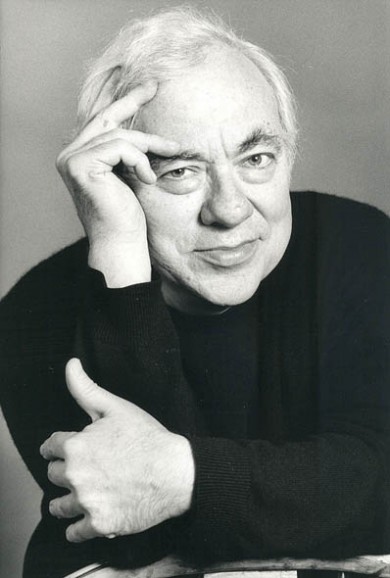Richard Goode presents a stimulating blend of authority and poetry
Richard Goode has long been renowned for his performances of the piano sonatas of Schubert and Beethoven, so it was entirely appropriate that Schubert’s Sonata No. 20 in A Major formed the centerpiece of his recital for Sunday Afternoons of Music.
That inspired masterwork was Schubert’s next-to-last keyboard work and, coincidentally, the concert marked the penultimate presentation of Doreen Marx’s concert series which is winding down after thirty-three years of performances. (An insert in Sunday’s program listed the names of the nearly three hundred artists who have appeared on the series.) Goode bookended the Sunday afternoon program at UM Gusman Concert Hall with a sampling of Czech and French impressionistic music.
Goode is a stimulating interpreter who puts a personal stamp on everything he plays. There was real authority in the opening chords of the Schubert sonata but Goode held his considerable power in reserve. In a wonderfully varied dynamic palette, the soft lines were particularly warmly etched, the emphatic syncopations and lightness of the second subject fluidly molded.
The haunting melody of the Andantino was eloquently stated and, after the heaven-storming central section, reprised in the most soft, pearly tones.
A dance-like verve dominated the playful Viennese charm of the Scherzo but Goode’s performance reached its peak in the Rondo finale. After lightly tracing the serene principal melody, he elegantly dovetailed right-hand filigree over its restatement in the left hand, the playing absolutely clean and precise. A virtuosic coda concluded a reading that demonstrated artistry of the most refined order.
Four pieces from Leos Janacek’s On an Overgrown Path were exquisitely realized. Goode brought minute tonal shading to “Our Evenings” and shaped the initial melodic pastorale of “A Blown Away Leaf” with delicacy. The shifting meter of this windswept vignette was seamlessly managed, the pulse steadily maintained.
Debussy’s Preludes are not repertoire one usually associates with Goode but his traversal of Book I flowed with a winning combination of intellect and technical aplomb. Less scented than many interpreters, Goode’s Debussy emphasized clarity and rhythmic definition.
The rippling figurations of Voiles sparkled and the rapid articulation of alternately loud and soft pianistic bursts surged through The Wind in the Plain. Goode essayed The Girl with the Flaxen Hair with a plethora of tonal colors. From the initial austere chords portraying the ocean’s depths, Goode built La Cathedrale engloutie (The Submerged Cathedral) into an almost orchestral sonority.
He also played the lighter pieces with an appealing mix of bravura and wit. The quirky surprise ending of La serenade interrompue and rollicking figures of La danse de Puck were deftly managed and the folksy tunes of Minstrels dispatched with lightness.
Standing ovations brought one more Debussy prelude as an encore. A sweeping reading of Ondine from Book II offered a touch of perfumed sweetness and Goode’s pinpoint trills, a superb final curtain for an afternoon of pianistic mastery.
Sunday Afternoons of Music concludes its final season 4 p.m. May 18 with a recital by mezzo-soprano Isabel Leonard and pianist Vlad Iftinca featuring songs and operatic arias. sundaymusicals.org 305-271-7150
Posted in Performances
Leave a Comment
Mon Mar 17, 2014
at 12:23 pm
No Comments

